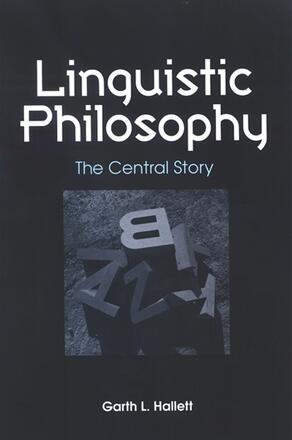
Linguistic Philosophy
The Central Story
Alternative formats available from:
Explores the role language plays in the relationship between reality and utterance.
Description
How much authority should language, the medium of communication, be accorded as a determinant of truth and therefore of what we say? Garth L. Hallett argues that, although never explicitly debated, this is the most significant issue of linguistic philosophy. Here, for the first time, he traces the issue's story. Starting with representative thinkers—Plato, Aquinas, Kant, Frege, and the early Wittgenstein—who contested language's authority, the narrative then focuses on thinkers such as Carnap, Tarski, the later Wittgenstein, Flew, Russell, Malcolm, Austin, Kripke, Putnam, Strawson, Quine, and Habermas who, in different ways and to varying degrees, accorded language more authority. Implicit in this account is a challenge to philosophy as still widely practiced.
Garth L. Hallett is Dean of the College of Philosophy and Letters at St. Louis University and the author of many books, including Essentialism: A Wittgensteinian Critique, also published by SUNY Press.
Reviews
"Hallett's treatment combines impressive philosophical erudition with penetrating and insightful analysis. " — William H. Brenner, author of Wittgenstein's Philosophical Investigations
"This book is a highly enlightening introduction to and survey of linguistic philosophy in the twentieth and twenty-first centuries. The work is accessible to readers without a strong background in philosophy, and leads them through a wide range of philosophers and philosophies. This is not a mere survey, for the author develops his own position in the course of working through the views of other philosophers, and engages the reader in his project of understanding and defending the authority of language. " — John T. Kearns, author of Reconceiving Experience: A Solution to a Problem Inherited from Descartes